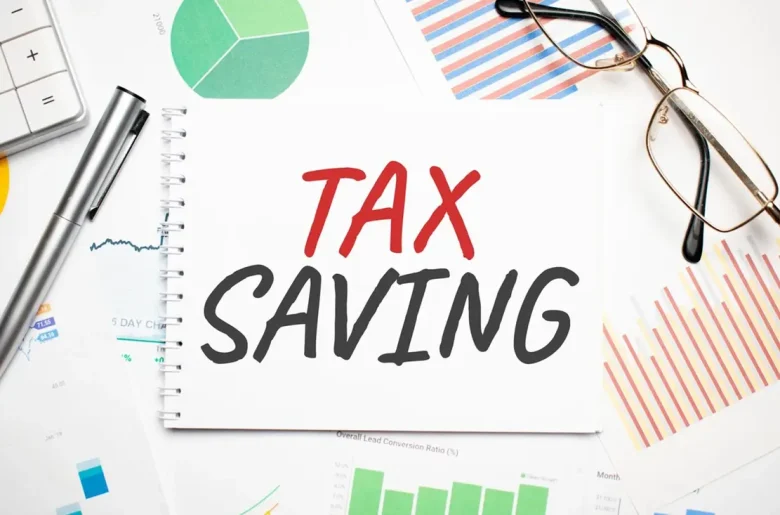While paying taxes is an essential part of life, there are smart ways to save money every year. As a result, many people pay more tax than necessary because they don’t know how to reduce their tax burden. A well-thought-out tax reduction plan makes managing your finances easier and helps you build wealth, secure your future, and invest wisely. You can consider tax deductions, exemptions, and government-approved investment programs to reduce your taxable income and increase your savings. But that’s not the point. The most important thing is to use the law wisely and legally. In this article, we discuss some of the best tax-saving tips that everyone should know. These tips will help you stay within the rules and still save more.
Understanding the Importance of Tax Planning:
You can manage your money in a way that helps you achieve both short-term and long-term goals. Tax planning isn’t just about reducing your tax bill. Effective tax planning guarantees the optimal allocation of your money, savings, and investments. If you don’t plan, you could overpay taxes, miss out on valuable tax deductions, or miss out on tax savings. By starting early and staying up-to-date on the latest tax rules, you can develop a plan that saves you taxes while building wealth. This approach benefits your current income and helps you plan for retirement, cover medical expenses, and maintain financial stability.
How to Maximize Tax Deductions:
Tax deductions are one of the best ways to reduce your taxable income. Because these benefits lower your taxable income, your overall tax burden is also reduced. For example, you can often deduct expenses like student loans, health insurance, charitable donations, and mortgage interest. By keeping adequate records and claiming these deductions correctly, people can significantly reduce their tax burden. Many people forget small adjustments, but they can add up to a big difference. Knowing which expenses are deductible allows you to make smarter financial decisions throughout the year, instead of waiting until your tax return.
Take Full Advantage of Tax Breaks:
Another important way to save money that you shouldn’t overlook is taking advantage of tax deductions. Unlike tax credits, tax deductions don’t reduce your taxable income; instead, they make certain income or expenses completely tax-free. Housing allowances, travel expenses, and investments in certain government programs are common tax deductions. By managing your payroll costs well, minimizing your tax burden, and taking advantage of all available tax deductions, you can significantly reduce your tax burden. Tax authorities typically change their tax deductions and exemptions annually. By staying informed about these changes, you won’t miss opportunities to save money. A combination of tax deductions and tax credits can help you save even more.
Investing in Government-Approved Schemes:
Investing in government-approved tax-saving schemes is one of the safest ways to save taxes and secure your future. Employees’ Provident Funds (EPFs), National Savings Certificates (NSCs), Sukanya Samriddhi Yojana, and Public Provident Funds (PPFs) are popular options. Contributions to these schemes are tax-deductible and offer low risk and stable returns. Some schemes also offer tax-free returns at maturity, making them ideal for long-term wealth accumulation. By investing a portion of your income in these schemes, you can save taxes and ensure you have enough money for the future. These instruments are particularly useful for those seeking low-risk and stable returns.
Get Tax Deductions with Insurance:
People often think that insurance is just a way to protect their finances, but it can also help them save significant taxes. Under current tax law, you can deduct premiums for life insurance, health insurance for you and your family, and a portion of your pension plan. Besides immediately reducing your taxable income, insurance can also provide your family with financial protection in emergencies. Health insurance, in particular, can help you cover rising medical costs and reduce your tax bill. You can find the right balance between protection and savings by choosing the right insurance plan based on your budget and protection needs.
A Mortgage Can Help You Save Money:
Many people buy a home to save money, but it also lowers their taxes. You can deduct the principal and interest on your mortgage after paying it off. These government incentives encourage homeownership, making investing in real estate a smart financial move. You not only build valuable assets for the future but also significantly reduce your tax bill. These deductions are especially useful for people with income, as they can combine them with other deductions, such as housing benefits, to maximize savings. Knowing how to maximize your mortgage deduction can have a giant impact on your long-term wealth accumulation.
Use Your Pension Plan Wisely:
Planning for your retirement is crucial, and if done correctly, it can also help you save money. In most cases, you can deduct the money you contribute to retirement accounts and pension plans. Investing in a pension plan not only provides financial freedom in your old age but also reduces the amount of tax you pay during your working life. If you stay in your pension plan for a long time, you can even get additional tax deductions. It’s a mutually beneficial situation. Thanks to this plan, you not only save money in the long run but also lower your tax bill in the short term.
How to Avoid Common Tax Mistakes:
There are many ways to save money on taxes, but people often make mistakes that can undermine their plans. For instance, one may fail to file their tax return on time, record expenses incorrectly, overlook deductions, or make rash investment decisions just before the tax deadline. These mistakes can lead to missed savings, penalties, or tax returns. To prevent these issues, it is advisable to organize your tax return over the course of the year, rather than waiting until the last minute. By staying organized, seeking professional help when needed, and regularly consulting tax law, you can avoid unnecessary stress and get the most out of your tax return.
Conclusion:
Tax reduction is not only a way to alleviate your current financial stress but also a way to take control of your financial future. You can take advantage of tax breaks, exemptions, and government-approved programs to ensure you don’t overpay in taxes while investing for long-term security. Insurance, mortgages, and retirement plans can all help you save more money, become more stable, and prosper. Tax planning should be proactive, consistent, and aligned with your overall financial goals. This is paramount. You can find a balance between following the rules and saving money by making smart decisions and avoiding common mistakes. In the long run, you’ll enjoy greater financial freedom if you pay your taxes correctly.
FAQs:
1. What is the difference between tax exemptions and tax deductions?
Tax deductions lower your taxable income by including qualified expenses. Tax exemptions, on the other hand, make certain income or deductions completely tax-free. Both help reduce your tax bill.
2. How can a mortgage help you save on taxes?
After you pay off your mortgage, you can claim a tax deduction on both the principal and the interest. This can reduce your overall tax bill and help you build long-term wealth.
3. Are insurance premiums tax-deductible?
Yes, you can deduct the cost of life insurance, health insurance, and some pension plans. This protects your finances and saves you tax at the same time.
4. Why is it important to plan your tax return?
By planning your taxes, you can better manage your money, maximize the benefits you can claim, and avoid making last-minute mistakes or missing opportunities to save money.
5. Which purchases can help you save on tax?
One of the best ways to save on tax is through government-approved schemes such as PPFs, EPFs, NSCs, and pension funds. These schemes offer stable returns, security, and long-term benefits.



